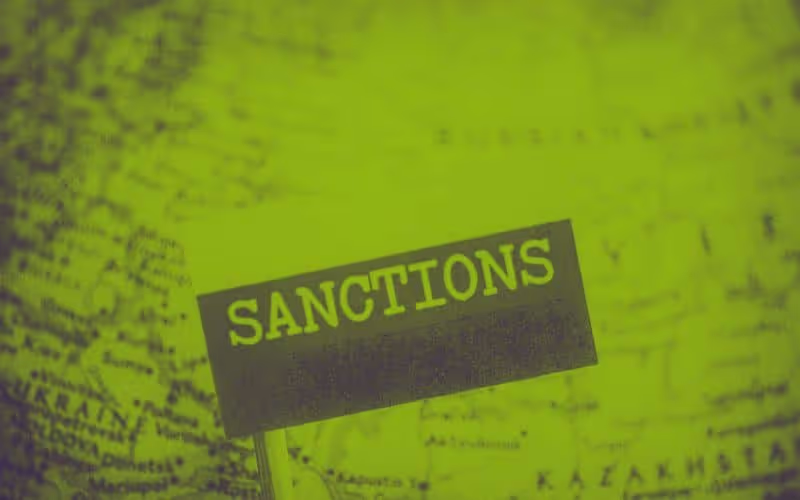
What Is Next for Russian Sanctions?
In June 2022, the European Council adopted a sixth package of sanctions against Russia prohibiting the purchase, transfer or import of crude oil and other petroleum products to the EU, to be applied over the next six to eight months. These restrictions will cover nearly 90% of Russian oil imports to Europe by the end of 2022, reducing their trade profits significantly. While these unprecedented sanctions have not had their desired effect, businesses and citizens affected continue to hope that the conflict will be resolved and that business will resume as normal. Until then, however, it’s important for all businesses involved in international trade to keep abreast of current and potential sanctions that may still be implemented in the coming months.
In June 2022, the European Council adopted a sixth package of sanctions against Russia prohibiting the purchase, transfer or import of crude oil and other petroleum products to the EU, to be applied over the next six to eight months. These restrictions will cover nearly 90% of Russian oil imports to Europe by the end of 2022, reducing their trade profits significantly.
While these unprecedented sanctions have not had their desired effect, businesses and citizens affected continue to hope that the conflict will be resolved and that business will resume as normal. Until then, however, it’s important for all businesses involved in international trade to keep abreast of current and potential sanctions that may still be implemented in the coming months.
Sanctions to Date
The sanctions by the EU and US have been designed to weaken the Kremlin’s ability to finance the military attack against Ukraine and impose economic and political penalties on those responsible. (Sanctions have also been imposed against Russian ally Belarus in response to their involvement with the current conflict).
The sanctions imposed include individual restrictive measures, diplomatic measures, economic sanctions, media restrictions, restrictions on economic relations with Crimea and Sevastopol, as well as restrictions on economic relations with non-government-controlled areas of Luhansk and Donetsk and restrictions on economic cooperation. (Detailed information related to Russian sanctions can be found on the Sanctions.io blog).
Potential Future Sanctions
The current US and EU sanctions imposed against Russia have flattened their financial system and will probably move the Russian economy into a depression. Both the US and UK have announced that they plan to ban imports of Russian oil, while the EU is considering (and will likely) restrict purchases of natural gas.
Russia is still continuing its attacks, including its apparent targeting of civilians and non-military infrastructure, which places pleasure on the West to escalate sanctions even further. While sanctions have been considerable, there are still areas that may be targeted soon.
- Targeting oligarchs
The West has already targeted several oligarchs and Putin’s associates, seizing yachts and placing several billionaires on sanctions lists. It is expected that even more individuals will be added to sanctions lists to sow uncertainty and place pressure on the Kremlin. There are currently 1158 and 98 entities that have been subject to asset freezing and a travel ban, but this list is constantly reviewed and renewed by the EU Council.
- Targeting businesses
The financial and defense sectors were hard hit by sanctions, including state-owned banks, but further sanctions are expected. Private and state-owned banks may be blocked from using the international financial system entirely, while there is speculation that transportation companies Sovcomflot, Russian Railways, and the diamond company Alrosa could be heavily restricted in the near future. The US may soon follow the UK in sanctioning Russian insurance giant Sogaz as well.
- Sanctioning the Moscow Exchange
The West has aggressively undermined Russia’s domestic capital markets and severed Russia’s access to many external markets. If Russia does not withdraw, they may target the Moscow Exchange with fresh sanctions.
- Blocking all Russian state-owned companies and investments
Many Russian state-owned enterprises are already sanctioned, but further blocking is possible, placing Russian sanctions on par with those against Iran, North Korea and Syria. The US has already banned new investments in Russian energy projects but may well extend those sanctions to the entire Russian economy, prohibiting any new investment in the country. It’s also possible that sanctions may escalate to a full financial embargo banning all transactions, exports and imports with Russia, removing the country from the global economy altogether.
Penalizing Sanctions Evaders
Sanctions are only effective if they are sufficiently enforced, which is why there will be renewed efforts to crack down on sanctions evaders, including Russian businesses who create shell companies or hide behind complex ownership structures to avoid detection. Many countries and industry bodies remain engaged in intensive, ongoing consultations with their allies to ensure that sanctions are enforced across the board. Harsh penalties, including criminal prosecution, remain in effect.
As such, financial and other institutions must understand what is expected of them to avoid penalties, including having appropriate policies in place that ensure compliance with sanctions legislation.
This includes carrying out appropriate, regular, risk-based checks of sanctions lists that are clearly evidenced. Sanctions screening and Know Your Customer checks are often your first and best line of defense against inadvertent sanctions violations. Firms that are authorized by specific regulators must acquaint themselves fully with their guidance. If there is a need to deal with a sanctioned individual or entity, special licenses must be acquired through the appropriate channel.
Financial firms that suspect that a current or new customer is a designated person under the financial sanctions regime must make a report to the Office of Financial Sanctions Implementation (OFSI). This should include any information on which the suspicion is based and any information held about the designated person by which they can be identified. Evidence isn’t required; any suspicion is grounds for reporting.
{{snippets-case}}
Conclusion
The US has clearly outlined conditions for the removal of sanctions, including Russian withdrawal from the Ukraine and assistance with their rebuilding efforts following the conflict. Whether the Russian government will comply or not remains to be seen, but the continued escalation of sanctions and restrictions may soon force their hand.
Even so, the suspension or removal of Russian sanctions (given their harshness) will be complex and may take some time.
Firms need to make every effort to comply with existing and future sanctions. While this is increasingly difficult to do so, an intelligent Sanctions Screening process is required to help businesses with becoming and remaining fully compliant with emerging and ever-evolving sanctions requirements. Contact our sanctions.io Customer Success Team for any assistance in your sanctions screening process.
To learn more about sanctions screening, sanctions.io's comprehensive Ultimate Sanctions Screening Guide is an excellent resource to get started.



